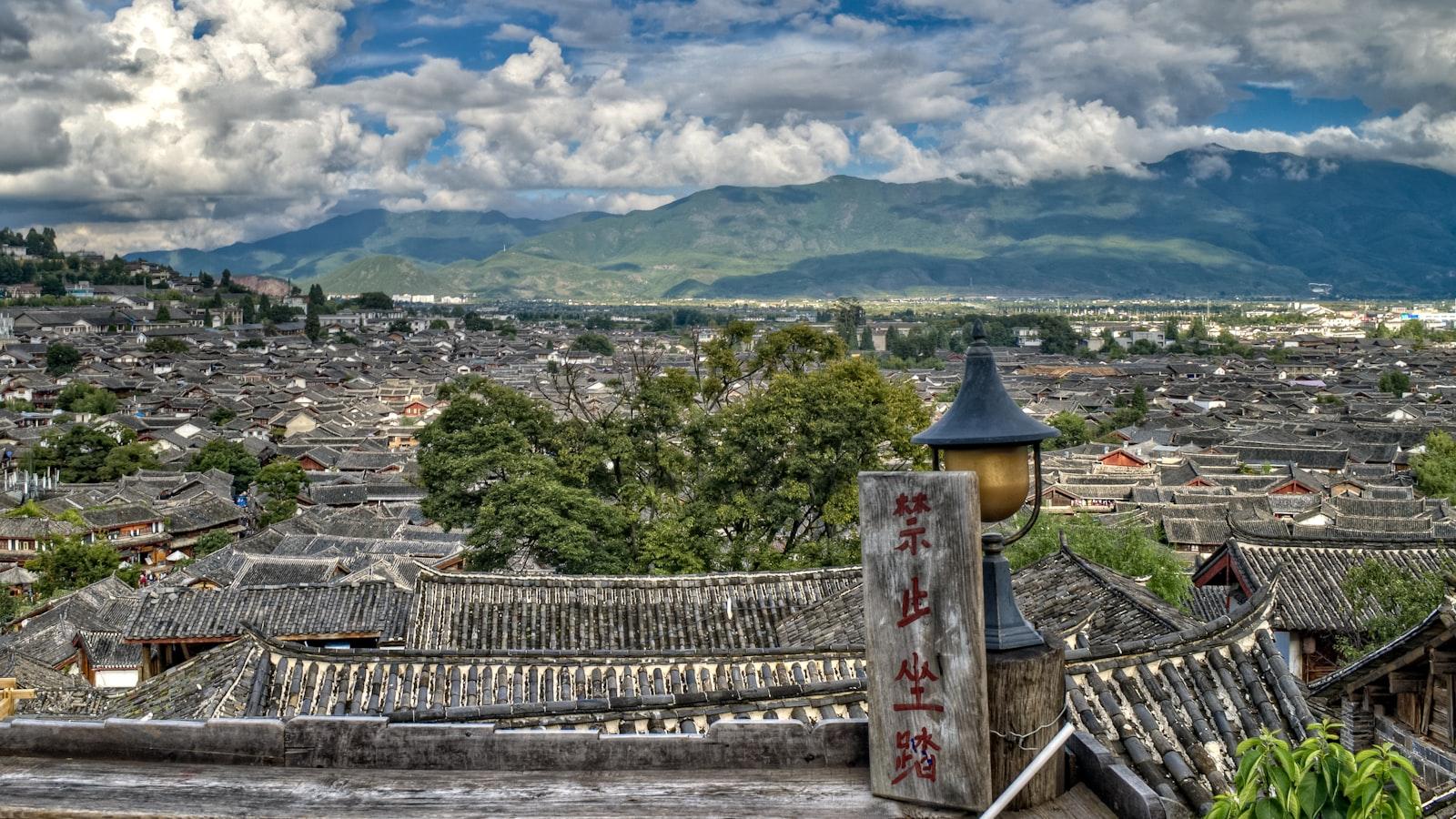In a world where ancient wisdom meets modern curiosity, a treasure trove of healing secrets lies hidden in the mystical land of the East. Welcome to the enchanting realm of Traditional Chinese Medicine (TCM) herbs, where rich history intertwines with nature’s bountiful offerings. Prepare to embark on an extraordinary journey, where millennia-old traditions offer insight into the art of wellness. Unlocking the profound wisdom of Traditional Chinese Medicine herbs, we delve into the ancient tapestry that continues to captivate and heal minds, bodies, and souls. Step into this extraordinary world, where the past dances with the present, and nature’s most precious treasures reveal their remarkable potential.
The Ancient Origins and Cultural Significance of Traditional Chinese Medicine Herbs
Traditional Chinese Medicine (TCM) has a rich history that stretches back thousands of years, and one of its most important aspects is the use of herbs. These herbs, known as the treasures from the East, have been cultivated and utilized in TCM for their healing properties and cultural significance. They play a crucial role in achieving balance and harmony within the body, mind, and spirit.
The cultural significance of traditional Chinese medicine herbs cannot be overstated. These herbs are deeply rooted in Chinese culture and are considered an essential part of everyday life. They are used not only for treating illnesses but also for maintaining health and preventing disease. In TCM, the body is seen as an interconnected system, and these herbs are believed to restore balance and promote overall well-being.
One remarkable aspect of traditional Chinese medicine herbs is the wide variety available. There are hundreds of different herbs, each with its own unique properties and uses. Some of the most commonly used herbs include ginseng, goji berries, and licorice root, known for their rejuvenating and immune-boosting properties. These herbs are often combined into formulas tailored to an individual’s specific needs, resulting in a holistic approach to healing. TCM herbs can be consumed in various forms, such as teas, powders, and capsules, making them easily accessible to people around the world.
In conclusion, traditional Chinese medicine herbs are treasures from the East that have captivated people’s attention for centuries. Their ancient origins and cultural significance make them a valuable part of traditional Chinese medicine and an integral part of Chinese culture. By harnessing nature’s healing power, TCM herbs offer a unique and holistic approach to health and wellness. Whether you’re looking to improve your overall well-being or seeking relief from a specific ailment, exploring the world of traditional Chinese medicine herbs can open up a world of possibilities for healing and self-discovery.
Unveiling the Healing Properties: A Closer Look at Traditional Chinese Medicine Herbs
Traditional Chinese Medicine (TCM) has been practiced for thousands of years and is known for its holistic approach to healing. One of the key pillars of TCM is the use of herbs, which are believed to possess powerful healing properties. These herbs are considered treasures from the East and have been used to treat a wide range of ailments.
One such herb is Ginseng, which is often referred to as the “king of herbs” in TCM. Ginseng is known for its adaptogenic properties, which means it helps the body cope with stress and boosts overall resilience. It is commonly used to improve energy levels, enhance mental clarity, and strengthen the immune system. Additionally, this powerful herb is believed to have anti-inflammatory and antioxidant effects, making it a popular choice for promoting longevity and vitality.
Another herb commonly used in TCM is Dang Gui, also known as Chinese Angelica. This herb has been used for centuries to nourish the blood and regulate the menstrual cycle in women. It is often prescribed to help alleviate symptoms of menopause, such as hot flashes and mood swings. Dang Gui is also believed to have a calming effect on the nervous system, making it a popular choice for reducing stress and anxiety.
In addition to these herbs, there are countless others that are used in TCM to promote health and well-being. From Goji berries to Reishi mushrooms, each herb offers its own unique benefits. Whether you’re seeking to boost your energy, relieve pain, or improve your overall vitality, TCM herbs are a natural and time-tested way to support your health goals.
Unlocking the Therapeutic Potential: Prominent Traditional Chinese Medicine Herbs and Their Benefits
In the world of traditional Chinese medicine, there lies a treasure trove of herbs that have been used for centuries to promote health and well-being. These herbs, often steeped in rich history and cultural significance, have caught the attention of modern medicine for their potential therapeutic benefits. Unlocking the therapeutic potential of these prominent Chinese herbs has become a topic of great interest and research in recent years.
Some of these traditional Chinese medicine herbs have gained prominence for their ability to address various health concerns. For example, Astragalus, also known as ”Huang Qi”, has long been used to boost the immune system and improve energy levels. Another herb, Reishi mushroom, or “Lingzhi”, is believed to enhance longevity and promote overall vitality. Additionally, the powerful benefits of Ginseng, or “Ren Shen”, have been highly regarded in Chinese medicine for improving cognitive function and reducing fatigue.
- astragalus (huang qi)
- reishi mushroom (lingzhi)
- ginseng (ren shen)
| Herb | Benefit |
|---|---|
| Astragalus (Huang Qi) | Boosts immune system and improves energy levels |
| Reishi Mushroom (Lingzhi) | Enhances longevity and promotes overall vitality |
| Ginseng (Ren Shen) | Improves cognitive function and reduces fatigue |
Exploring the therapeutic potential of these traditional Chinese medicine herbs opens up a world of possibilities for alternative healing practices. By incorporating these herbs into holistic health routines, individuals can potentially experience the many benefits they have to offer. As research continues to uncover the science behind these herbs, their prominence in modern medicine may continue to grow, providing new and innovative solutions for various health ailments.

Exploring Traditional Chinese Medicine Herbs: Recommended Usage and Precautions
Traditional Chinese Medicine (TCM) has been practiced for centuries, and its use of herbs has been a fundamental part of this ancient medical system. Chinese herbs are believed to possess unique properties that can promote healing and overall well-being when used properly. In this article, we will delve into the world of these botanical treasures from the East and explore their recommended usage and precautions.
When it comes to TCM herbs, understanding the recommended usage is crucial for maximizing their benefits. Each herb has specific properties that can address different health conditions. For example, ginseng is often used to boost energy and improve mental clarity, while goji berries are renowned for their high antioxidant content. To best utilize these herbs, it is recommended to consult with a qualified TCM practitioner who can provide personalized guidance based on your specific needs and health condition.
Recommended Usage:
- Follow the dosage instructions provided by a TCM practitioner.
- Pay attention to any potential contraindications or interactions with other medications.
- Choose high-quality herbs from trusted sources.
- Prepare the herbs as directed, whether it’s making a decoction, brewing herbal tea, or using them in cooking.
- Be patient and consistent with your herb usage, as it may take time to see results.
Precautions:
- If you are pregnant, nursing, or have any underlying medical conditions, consult with a healthcare professional before using TCM herbs.
- Avoid self-diagnosis and self-medication, as TCM requires an individualized approach and proper diagnosis by a qualified practitioner.
- Inform your TCM practitioner about any allergies or sensitivities you might have to ensure the selection of suitable herbs.
- Keep in mind that TCM herbs are not a replacement for conventional medical treatments, and it is essential to combine TCM with appropriate Western medical care when necessary.
To Wrap It Up
As we bid farewell to the captivating world of Traditional Chinese Medicine herbs, we cannot help but marvel at the tremendous treasures this ancient practice has bestowed upon us. From the enchanting landscapes of the East, nature’s pharmacy unfolds, offering us a cornucopia of herbal remedies that have stood the test of time.
As we journeyed through the fragrant gardens of TCM, we discovered the miraculous powers of herbs such as ginseng, astragalus, and schisandra, each with its unique ability to heal both body and soul. These humble plants, seemingly ordinary at first glance, hide within them the secrets of millennia-old wisdom, patiently waiting for us to uncover their potent mysteries.
Yet, beyond their tangible effects lies a deeper connection to our own roots, to a time where nature and humanity intermingled harmoniously. Traditional Chinese Medicine herbs encapsulate the essence of a culture that reveres the body’s innate ability to heal, embracing the delicate balance between yin and yang, and harnessing the energies of the universe for holistic well-being.
During our exploration, we realized that the efficacy of TCM herbs stems from their holistic approach. Within every tiny leaf and delicate petal lies the wisdom of harmonizing not just physical symptoms, but also addressing the mind, emotions, and spirit. Through the gentle interplay of these elements, TCM herbs empower us to attain true harmony and vitality.
As we close this chapter, it is important to acknowledge the role of science in unveiling the enigmatic treasures of Traditional Chinese Medicine herbs. Through rigorous research and validation, these botanical wonders have gained recognition worldwide, joining the ranks of modern medicine to bring forth a more comprehensive approach to wellness.
In conclusion, the ethereal realm of Traditional Chinese Medicine herbs captivates us with its delicate dances of healing and harmony. Through its profound wisdom and intricate understanding of the art of balance, TCM empowers us to embrace a holistic path towards well-being. As we embark on our own wellness journey, let us remember the ancient treasures from the East, forever grateful for the gifts they have bestowed upon us.
